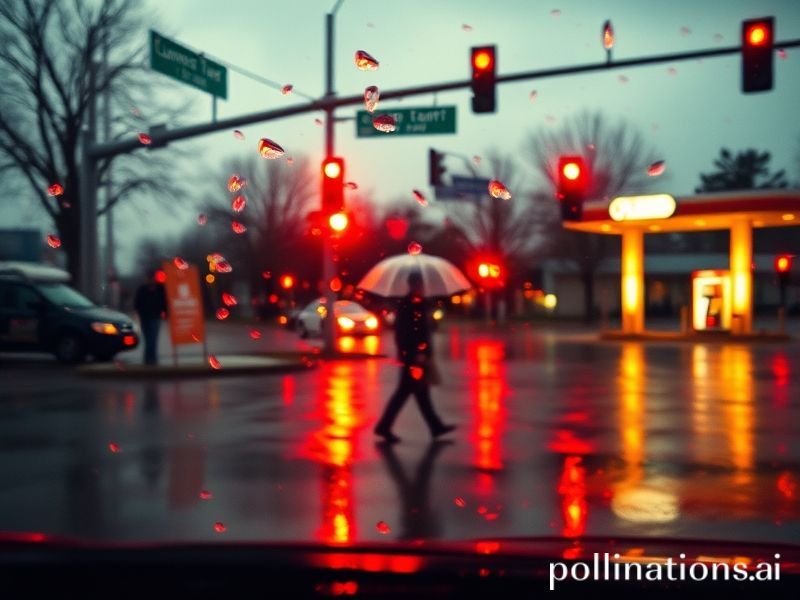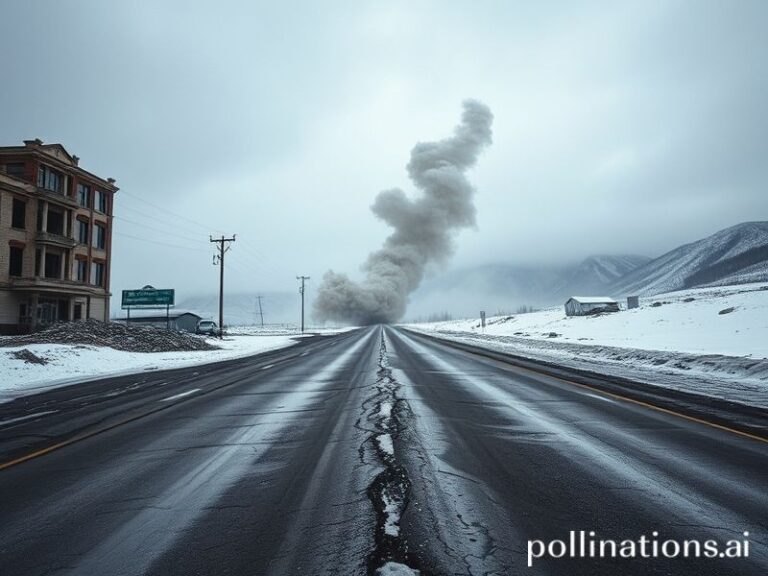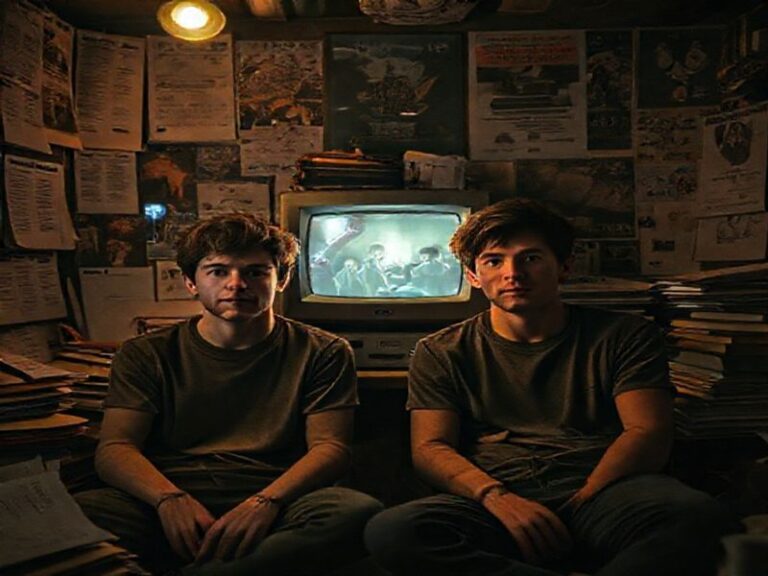Global Forecast: Your Local Weather Is Someone Else’s End Times
Weather Near Me, Apocalypse Near Us
By R. Salter, Senior Meteorological Misanthrope, Dave’s Locker
It’s a breezy 19 °C on my balcony in Lisbon—perfect for watching the Tagus glitter like a cheap disco ball while the rest of the planet melts, freezes, or combusts, depending on postal code. The phrase “weather near me” used to be a harmless query, the meteorological equivalent of asking the bartender what’s on tap. Now it’s an existential Rorschach test: type it into your phone and the algorithm instantly decides whether you deserve sunshine, biblical floods, or a polite dusting of radioactive ash.
Consider the global implications. In Vancouver, the same search returns “smoke from 300 Canadian wildfires,” which is less a forecast and more a lifestyle choice. Meanwhile, my editor in Delhi swipes his screen and learns the air quality index is “hazardous—try not to breathe.” One hemisphere away, friends in Buenos Aires are kayaking down what used to be 9 de Julio Avenue because the Plata decided to redecorate. The takeaway? “Near me” no longer means local; it means whichever micro-disaster has your coordinates in a headlock this week.
The worldwide supply chain, that delicate soufflé of human ingenuity, now depends on whether a typhoon feels like photobombing Taiwan or if the Rhine politely dries up to ankle depth. Last month, Volkswagen halted production because the Danube was too shallow for barges carrying engine blocks. Somewhere, an intern in Wolfsburg Googled “weather near me” and got the cheerful news that the river had become a very expensive gravel path. At least the interns still have ankles. Bangladeshi textile workers, ankle-deep in monsoon water that doubles as industrial runoff, are less fortunate.
Satellites feed us endless loops of swirling Armageddon—technicolor hypnotica narrated by presenters who sound disturbingly like airline captains announcing “a slight delay.” The language is clinical, the subtext apocalyptic. When the BBC says “unseasonably warm,” it’s code for “your grandchildren will need gills.” When the Japanese Meteorological Agency tweets a heat-stroke alert, it’s accompanied by an emoji that looks suspiciously like a boiled salaryman. We have gamified our own extinction; high score wins an all-inclusive beach vacation that no longer includes an actual beach.
And yet, the apps remain chipper. Mine just pinged: “Great day for outdoor yoga!” Outside, the Sahara is mailing its résumé to Portugal in the form of calima dust so thick the streetlights clicked on at noon. Somewhere, a brand influencer is still posing in warrior pose, eyes stinging, lungs auditioning for a coal mine. The algorithm, naturally, adds a sunscreen ad.
Economists insist weather is now a tradable commodity—futures on frost, options on orange juice, catastrophe bonds that pay out when half of Florida becomes an aquarium. The Chicago Mercantile Exchange lists “cooling-degree days” like they’re Pokémon cards. Investors in London hedge against drought in California while actual Californians hedge against investors. The invisible hand of the market is giving us all the finger.
Back on my balcony, the breeze flips to a hot, dry leste blowing off North Africa. Tomorrow, Lisbon’s cafés will be dusting croissants with extra Saharan minerals—artisanal, of course. I open the app again: “Chance of apocalypse: 30%, dropping to 10% overnight.” Reassuring, until you realize the scale tops out at 40%. Somewhere, an AI is learning that humans prefer their doom in manageable percentages.
So go ahead, ask your phone about the weather near you. Just remember the answer is curated by the same Silicon Valley savants who brought us social media and edible NFTs. If the forecast looks pleasant, enjoy it—it’s probably happening to someone else. Meanwhile, the rest of us will keep refreshing, as if the next swipe might reveal a planet that hasn’t been repossessed by physics.
Until then, carry an umbrella, a parka, and perhaps a small ark. The weather, like everything else these days, is global, mobile, and stubbornly out of warranty.







